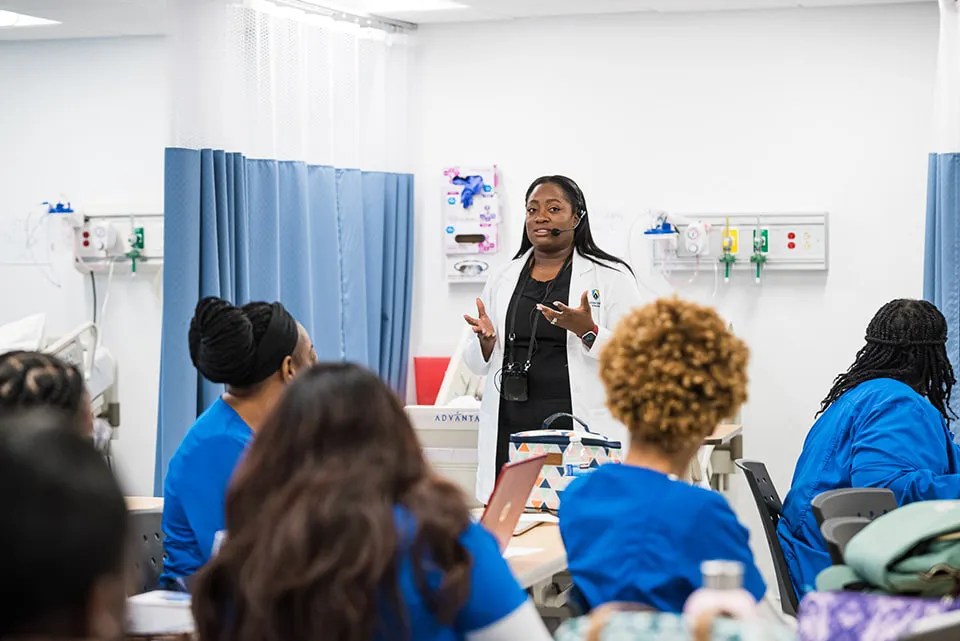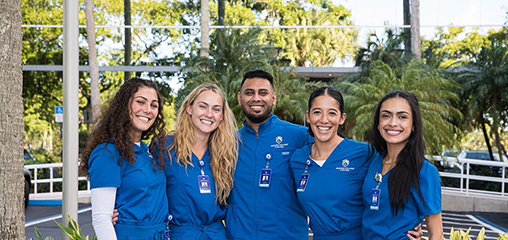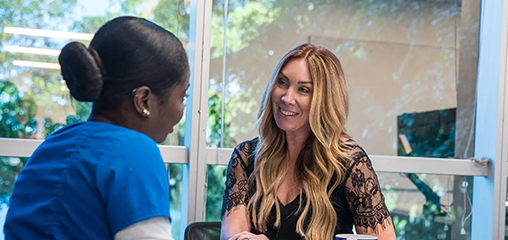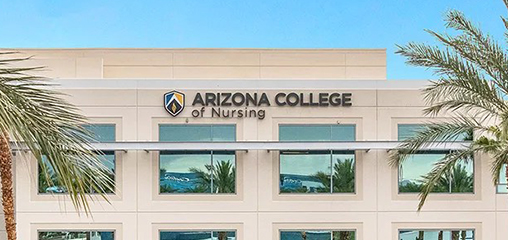
Attention to detail, organization and accuracy are key requirements for careers in health information management. It’s an allied health profession that’s becoming increasingly more important as paper medical records are moved into computerized systems. Learn from an Arizona College graduate about her fulfilling career as a Health Information Specialist.
What is Medical Billing and Coding?
Belinda Sledge, Arizona College Medical Billing and Coding program Graduate
“As a Health Information Specialist, I’m responsible for making sure my medical office’s paperwork is correct, up to date, and easy to find. When it is, our doctors and nurses have accurate information about all their patients, and the whole office runs more smoothly and serves our patients better.
Throughout each day, I analyze patients’ medical records to make sure they’re complete and current, and I add new information to the records when it’s available. I confirm and review patient data from test results, prescription lists, and medical history information, and check the records after every patient interaction. I also communicate often with doctors and nurses about patients’ care.

We’re currently working on transferring most of our paper files to a computer-based health record system, so I handle both paper-based and electronic data, and have to make sure our records are consistent. I have gotten to know the electronic health records software inside and out, and it’s my job to make sure all the files go to the right place — whether that’s in a folder or filing cabinet, or labeled and sorted correctly in the computer according to specific codes.
I sit at a desk most of the day, unless I’m looking through paper files or taking information to people who need it. Although I don’t work with patients face to face, I’m trusted to keep all their information correct, safe, and confidential. All of my work as a Health Information Specialist helps our office provide better care to patients. It’s also important because medical record keeping has to stay compliant with government regulations. As you can imagine, it’s critical that I have a smooth and efficient workflow for dealing with the information that crosses my desk. Accuracy is crucial, and it helps that I’m a detail-oriented person who enjoys organization and arranging data in a way that makes sense.
I enjoy my job as a Health Information Specialist. I feel accomplished at the end of each day, and I really like knowing I’m helping doctors and nurses do a better job of taking care of their patients.”
Take the First Step to Become a Health Information Specialist or Medical Biller and Coder
“A big part of being a good fit for this job is personality — I am detail oriented and prefer an organized environment, and I enjoy working with computers and technology. But my personality didn’t teach me all the skills I’ve needed to be able to work specifically within the healthcare field. There was so much I had to learn in order to understand medical terminology, medical billing and coding duties, and healthcare-specific data analysis.
Finding The Right Medical Billing and Coding School
My Medical Billing and Coding program at Arizona College taught me everything I needed to know to start working in a medical office. I learned about coding, anatomy and physiology, legal aspects of Health Information, and so much more. And studying to become a Health Information Specialist involved more than just classroom learning — I had the opportunity to learn in open labs with helpful tutors, and also to take part in a clinical externship that really solidified my skills.
If you think a career as a Medical Biller and Coder or Health Information Specialist might be right for you, I would recommend checking out Arizona College.
– Belinda Sledge, Arizona College Medical Billing and Coding program Graduate
Information in this blog post is accurate as of December 10, 2020.
Start Your Future in Nursing Today

If you’re considering a career as a registered nurse (RN), Arizona College of Nursing is here to help you pursue your dream. Our BSN program enables you to earn a Bachelor of Science in Nursing in just 3 years or less with qualifying transfer credits. We’ve helped hundreds of students to earn a BSN degree and enter the nursing profession – and we’re ready to support you on your path to becoming an RN.
Why Choose Arizona College of Nursing?
- Earn a BSN degree in 3 years or less with eligible transfer credits
- Campus locations throughout the US
- Night classes for general education courses
- Hybrid Online/In-Person format for general education classes
- Nursing education is all we do
- CCNE-Accredited Program*
- NCLEX-RN success coaches and exam preparation class
- Financial aid available to those who qualify
Discover Your Path to a Career in Nursing
Information in this post is accurate as of December 10, 2020.
*The Bachelor of Science in Nursing (BSN) degree program at Arizona College of Nursing is accredited by the Commission on Collegiate Nursing Education (https://www.aacnnursing.org/). All Arizona College of Nursing and Arizona College campuses are institutionally accredited by the Accrediting Bureau of Health Education Schools (https://www.abhes.org/), a U.S. Department of Education-recognized accrediting agency.








